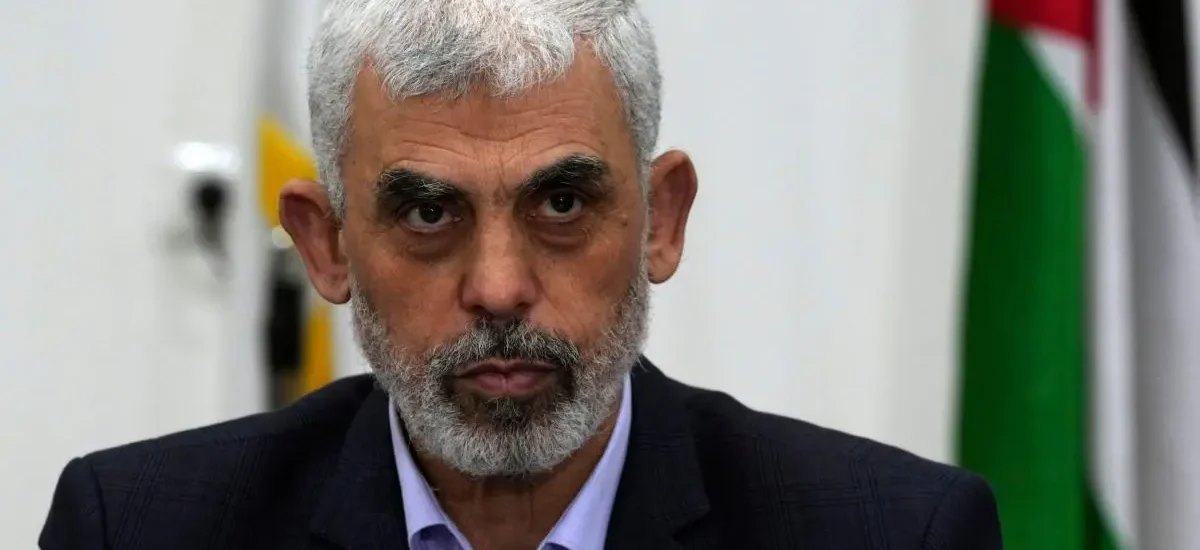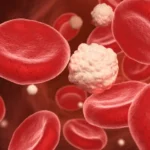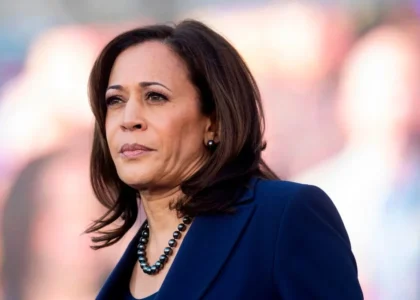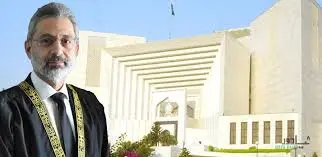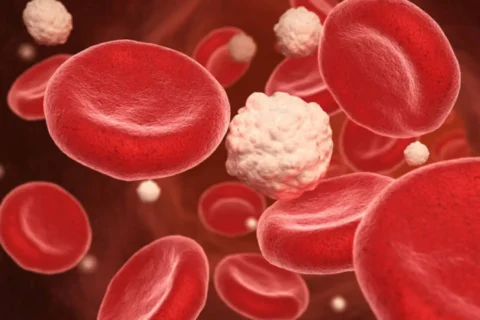The Israeli military is actively investigating the possibility that Yahya Sinwar, the leader of Hamas in Gaza, has been killed during the ongoing conflict between Israel and Hamas. Sinwar is considered one of the top figures within the militant group, and his death would have significant ramifications for both Hamas and the broader Israeli-Palestinian conflict. However, as of now, no official confirmation has been made.
This development comes amid heightened tensions following a major escalation of violence, which began with a large-scale attack launched by Hamas on Israel. As the conflict continues, the Israeli military, intelligence agencies, and other security apparatuses are working to verify reports and intelligence suggesting that Sinwar may have been targeted and killed.
Yahya Sinwar was born in 1962 in the Khan Younis refugee camp, located in the southern Gaza Strip. He comes from a Palestinian family that was displaced during the 1948 Arab-Israeli War, like many others in Gaza. Not much detailed information is publicly available about his immediate family, as Hamas leaders often maintain a level of secrecy to protect their loved ones. However, Sinwar grew up in a conservative and religious environment, which shaped his future role in Hamas.
Yahya Sinwar’s early involvement in Palestinian resistance movements led him to co-found the Izz ad-Din al-Qassam Brigades, the military wing of Hamas. He was imprisoned by Israel for his role in orchestrating attacks but was released in 2011 as part of a prisoner exchange. Since then, he has risen to become one of Hamas’ top leaders in Gaza. His family connections are believed to be deeply rooted in the Palestinian cause, which aligns with his militant role in Hamas.
Who Is Yahya Sinwar?
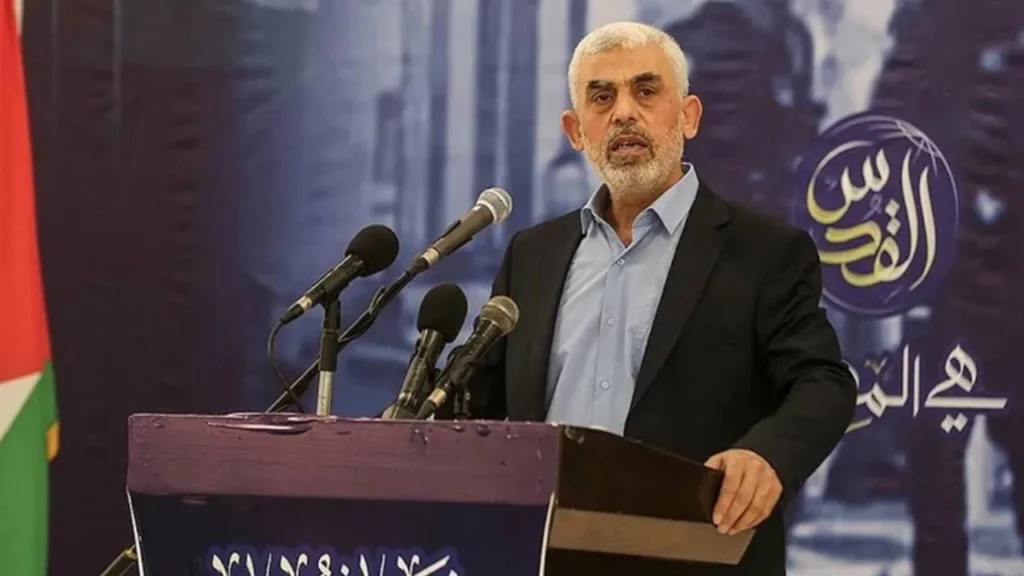
Yahya Sinwar is the de facto leader of Hamas in Gaza and is known for his strategic influence within the organization. Born in Khan Younis, in the southern Gaza Strip, Sinwar was once imprisoned by Israel for his involvement in orchestrating attacks but was released as part of a prisoner exchange in 2011.
His rise to power marked a shift in Hamas’ leadership, with Sinwar bringing a harder line in terms of military strategy and resistance against Israel. Under his leadership, Hamas has become more militarized and has coordinated various offensives, including rocket attacks and other actions aimed at Israel. Sinwar is considered a pivotal figure in Hamas’ operations and its relations with other countries in the region, including Iran, which has historically supported Hamas with funding and weapons.
Current Conflict and Escalation
The latest round of violence between Israel and Hamas erupted after a coordinated and large-scale attack on Israeli civilians and soldiers, leading to a significant Israeli response. In the aftermath, there have been numerous airstrikes, ground operations, and clashes, all leading to significant loss of life on both sides.
Israel’s Defense Forces (IDF) have responded with intense military operations in Gaza, aimed at eliminating Hamas’ capabilities and leadership. One of the primary objectives has been to dismantle the command structure of the group, and targeting Yahya Sinwar is part of that broader strategy.
The death of a high-ranking leader like Sinwar would be seen as a critical blow to Hamas’ leadership structure, likely impacting their ability to operate effectively in the short term. However, Hamas is a deeply embedded organization with multiple levels of command, meaning even if Sinwar were killed, the group would continue its operations.
Why Is Israel Focusing on Sinwar?
Yahya Sinwar is not just any leader of Hamas. His role goes beyond mere administration; he is a military tactician and a symbol of resistance for many Palestinians. Israel views him as directly responsible for many of the attacks on its citizens and military, making him a high-priority target.
From Israel’s perspective, eliminating Sinwar would send a strong message to Hamas and other militant organizations that attacks on Israel will not go unpunished. Additionally, removing someone of Sinwar’s stature could lead to disruptions within Hamas’ chain of command and its operational capabilities.
Sinwar’s death could create a power vacuum within Hamas, leading to internal struggles for leadership or potential shifts in the organization’s strategies. It could also influence the dynamics of how other Palestinian factions, like Islamic Jihad, react to the ongoing situation.
Hamas’ Response
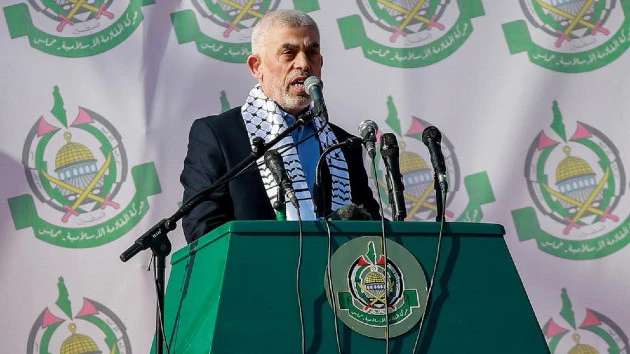
Despite reports that Sinwar may have been killed, Hamas has not officially confirmed his death. In fact, the organization has been known to downplay or delay the announcement of key figures’ deaths to maintain morale and unity within its ranks.
In the past, Hamas has shown resilience even in the face of losing high-profile leaders, quickly replacing them and continuing its operations. However, Yahya Sinwar is not easily replaceable. His combination of charisma, military expertise, and deep involvement in the movement over decades makes him a unique figure within the organization.
If Sinwar is confirmed dead, it could ignite further violence or serve as a rallying point for continued resistance against Israel. At the same time, it could also create divisions within the leadership, depending on who might step up to take his place.
The Role of Intelligence and Verification
Israeli intelligence, in collaboration with international partners, is using various tools and sources to confirm whether Sinwar was indeed killed. This includes signals intelligence, surveillance, and on-the-ground reports from operatives.
Confirming the death of a leader like Sinwar can be complex, as militant groups often attempt to conceal or delay such information. In addition, the chaotic nature of the conflict zone makes it challenging to verify casualties, especially when many figures may be operating in underground bunkers or hidden locations.
Once confirmation is received, it is likely that Israel will make an official announcement. However, until that point, speculation remains. The death of such a key leader could also affect ongoing ceasefire negotiations and the broader geopolitical landscape in the region.
Possible Ramifications for the Conflict
If Yahya Sinwar has been killed, it could lead to several different outcomes. On the one hand, Hamas could respond with an intensified wave of attacks on Israel, seeking to avenge his death. This could prolong the conflict and lead to further civilian casualties on both sides.
On the other hand, his death could also lead to a breakdown in Hamas’ internal organization, leading to a temporary lull in operations while the group regroups and reorganizes. This would give Israel a strategic advantage, allowing them to press their military objectives further.
Another consideration is the reaction from regional players, such as Hezbollah in Lebanon or Iran, both of which have been key supporters of Hamas. Sinwar’s death could prompt these groups to become more involved in the conflict, either directly or indirectly, by providing more resources to Hamas or launching their own attacks on Israel.
The Global Implications
The possibility of Yahya Sinwar’s death has also drawn international attention, particularly from countries involved in brokering peace deals or providing humanitarian aid to Gaza. The United States, European Union, and other global powers have urged both sides to de-escalate, though these calls have largely gone unheeded so far.
If confirmed, Sinwar’s death could also complicate diplomatic efforts to resolve the conflict. With a key figure gone, Hamas’ political wing may find it more difficult to negotiate, or they may harden their stance in response to the loss of a leader.
At the same time, Israel could find itself in a more advantageous position diplomatically, having eliminated one of the key figures behind recent attacks. This might bolster its arguments in international forums that its actions are justified as self-defense against a violent, militant organization.
What Happens Next?
For now, the Israeli military is continuing its operations in Gaza, and the situation remains fluid. Whether or not Yahya Sinwar has been killed, the conflict shows no signs of ending in the immediate future. As the IDF continues its strikes, the humanitarian crisis in Gaza is deepening, and international pressure is mounting for a ceasefire.
The coming days will likely provide more clarity on Sinwar’s fate, as both Israel and Hamas move to confirm or deny reports. But regardless of the outcome, the conflict will continue to evolve, shaped by the loss of leadership on one side and the determination of both to continue their fight.
In conclusion, while the Israeli military investigates the possible death of Yahya Sinwar, the conflict remains a deeply entrenched and multifaceted issue with regional and global implications. The impact of his potential death will be far-reaching, both within Hamas and beyond, as the dynamics of power, resistance, and survival continue to unfold.
